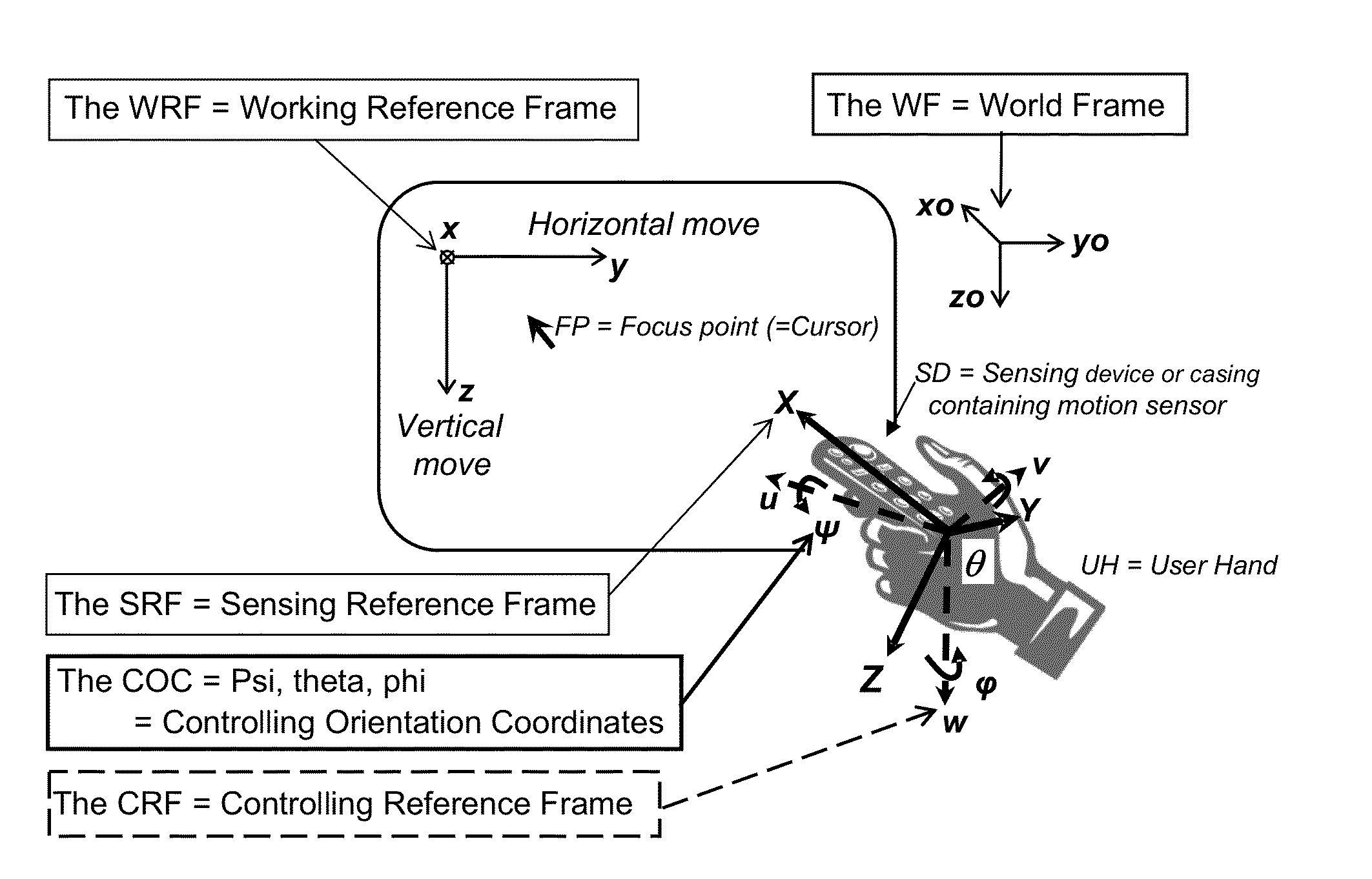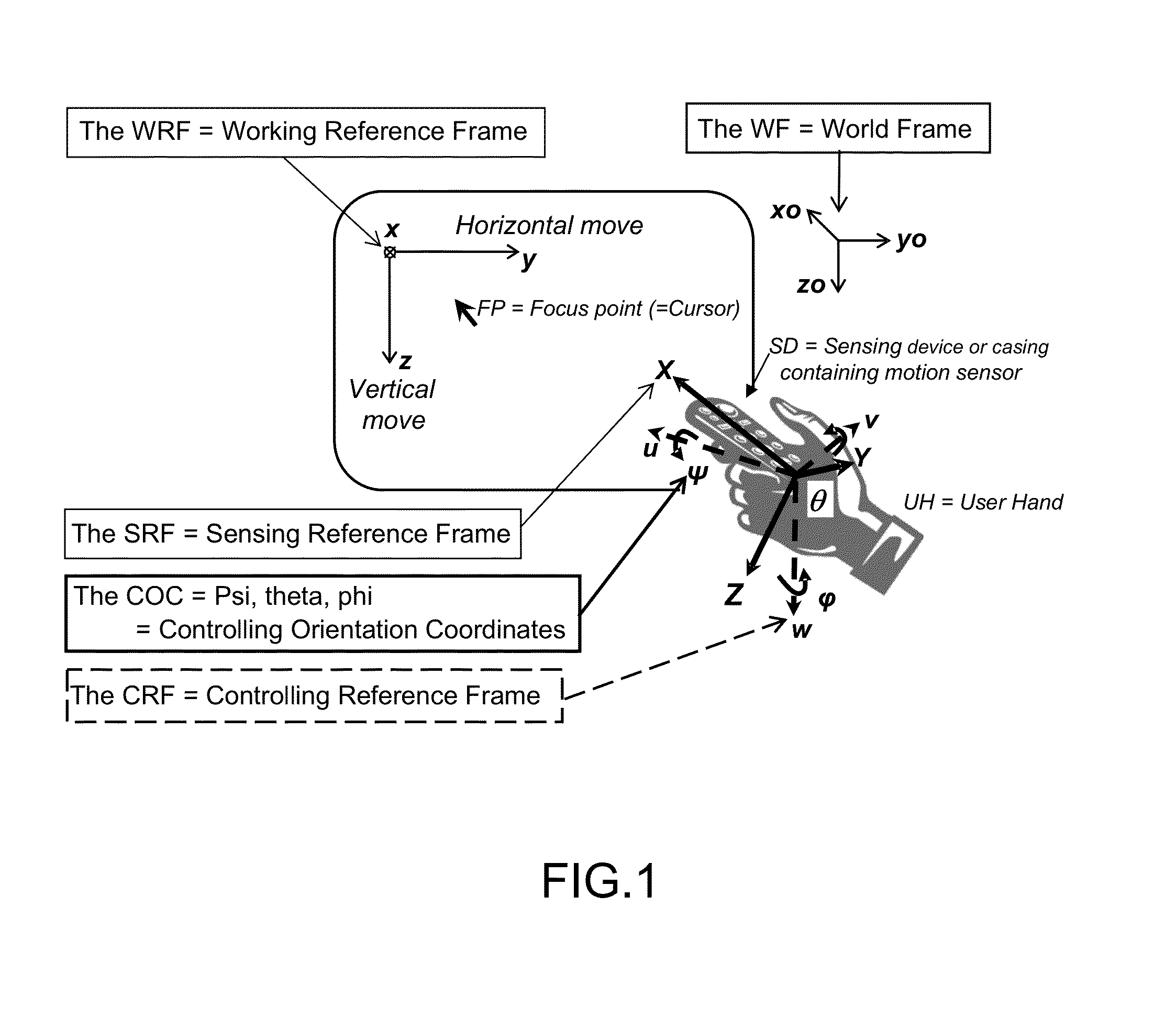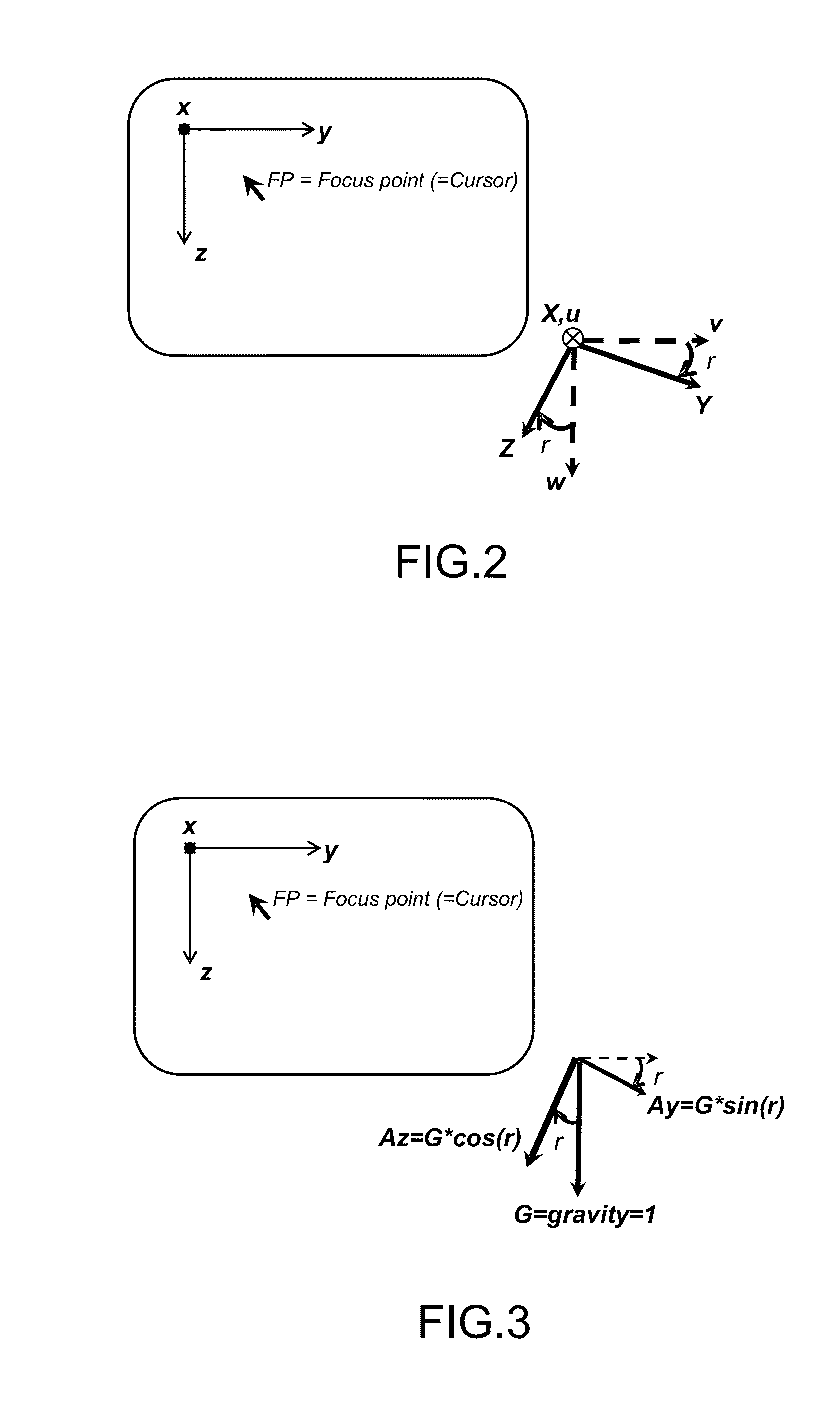Method and device for sensing orientation of an object in space in a fixed frame of reference
a fixed frame of reference and object technology, applied in the field of methods and devices, can solve the problems of limiting the span of torsion angle and displacement rate, bulky devices, and preventing them from real-time pointing applications
- Summary
- Abstract
- Description
- Claims
- Application Information
AI Technical Summary
Benefits of technology
Problems solved by technology
Method used
Image
Examples
Embodiment Construction
[0053]FIG. 1 represents a device controlling a display according to an embodiment of the invention. The figure also shows the different frames in which attitude and position coordinates can be referenced.
[0054]The remote control is used to correctly map the movements of a User's Hand (UH) which bears or holds motion sensors or Sensing Devices (SD) to the movements of a “Focus Point” (FP), for example a cursor, inside a Working Reference Frame (WRF). The different elements and frames of reference of the system are illustrated on FIG. 1.
[0055]An interesting property of the general system is that the user's brain is in-the-loop so that the displacement of FP is controlled by the intention of the user who uses the two angular movements (yaw and pitch in the WF) of his hand to move the cursor. When the FP moves in a plane, its movement in the WRF has two Degrees Of Freedom (DOF). In essence, the UH should move with the same number of DOF, so that the user is controlling the FP with as le...
PUM
 Login to View More
Login to View More Abstract
Description
Claims
Application Information
 Login to View More
Login to View More - R&D
- Intellectual Property
- Life Sciences
- Materials
- Tech Scout
- Unparalleled Data Quality
- Higher Quality Content
- 60% Fewer Hallucinations
Browse by: Latest US Patents, China's latest patents, Technical Efficacy Thesaurus, Application Domain, Technology Topic, Popular Technical Reports.
© 2025 PatSnap. All rights reserved.Legal|Privacy policy|Modern Slavery Act Transparency Statement|Sitemap|About US| Contact US: help@patsnap.com



